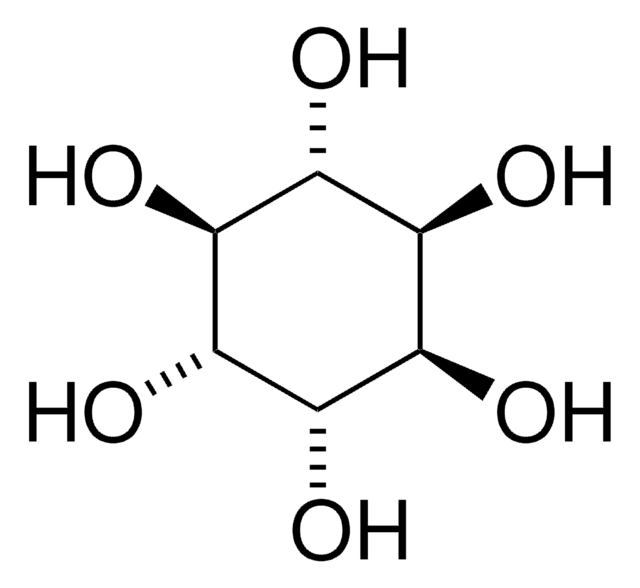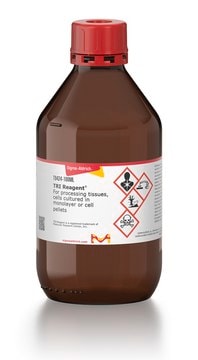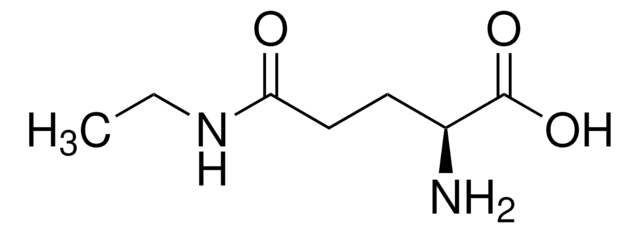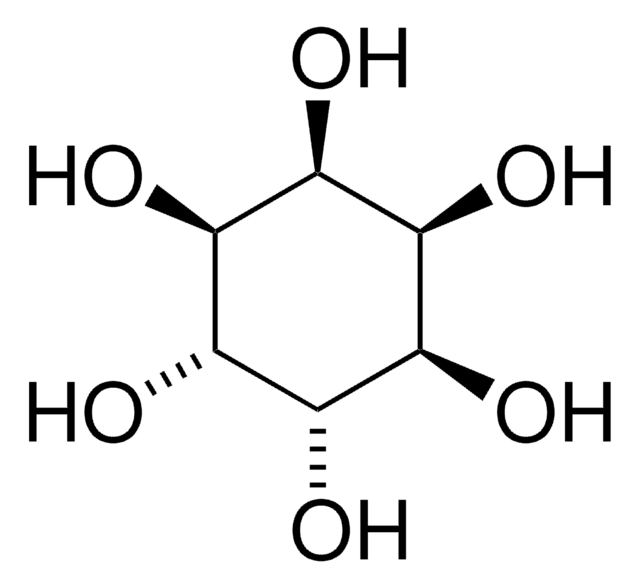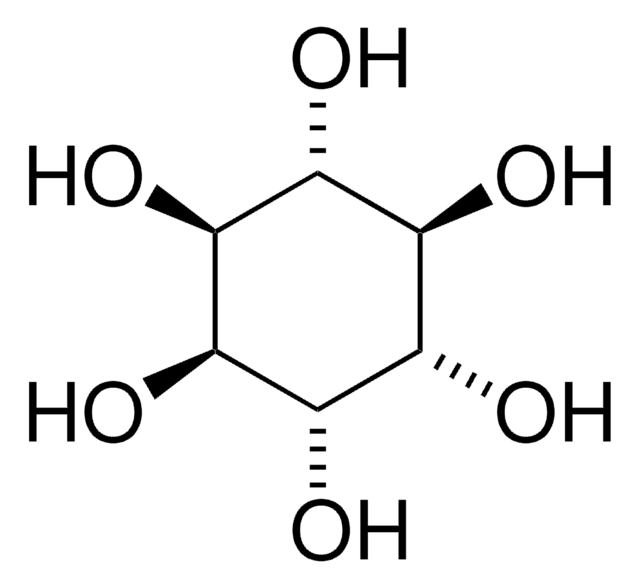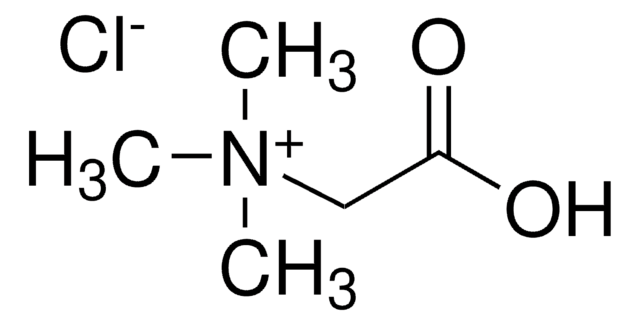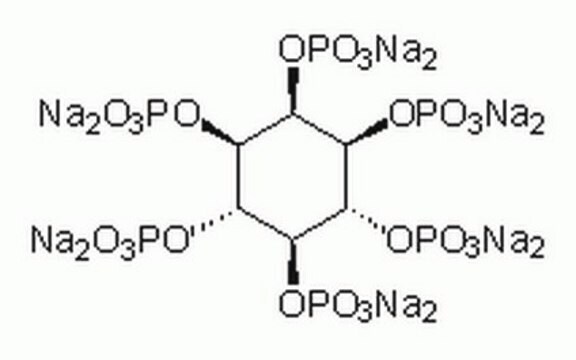PHR1351
Inositol
Pharmaceutical Secondary Standard; Certified Reference Material
Synonym(s):
myo-Inositol, 1,2,3,4,5,6-Hexahydroxycyclohexane, i-Inositol, meso-Inositol
About This Item
Recommended Products
grade
certified reference material
pharmaceutical secondary standard
Quality Level
Agency
traceable to Ph. Eur. Y0000485
traceable to USP 1340960
vapor density
6.2 (vs air)
API family
inositol
CofA
current certificate can be downloaded
technique(s)
HPLC: suitable
gas chromatography (GC): suitable
mp
222-227 °C (lit.)
application(s)
pharmaceutical (small molecule)
format
neat
storage temp.
2-30°C
SMILES string
O[C@H]1[C@H](O)[C@H](O)[C@H](O)[C@@H](O)[C@@H]1O
InChI
1S/C6H12O6/c7-1-2(8)4(10)6(12)5(11)3(1)9/h1-12H/t1-,2-,3-,4+,5-,6-
InChI key
CDAISMWEOUEBRE-GPIVLXJGSA-N
Looking for similar products? Visit Product Comparison Guide
General description
Pharmaceutical secondary standards for application in quality control, provide pharma laboratories and manufacturers with a convenient and cost-effective alternative to the preparation of in-house working standards.
Application
Biochem/physiol Actions
Analysis Note
Other Notes
Footnote
Recommended products
related product
Storage Class Code
11 - Combustible Solids
WGK
WGK 3
Flash Point(F)
Not applicable
Flash Point(C)
Not applicable
Choose from one of the most recent versions:
Already Own This Product?
Find documentation for the products that you have recently purchased in the Document Library.
Customers Also Viewed
Our team of scientists has experience in all areas of research including Life Science, Material Science, Chemical Synthesis, Chromatography, Analytical and many others.
Contact Technical Service
